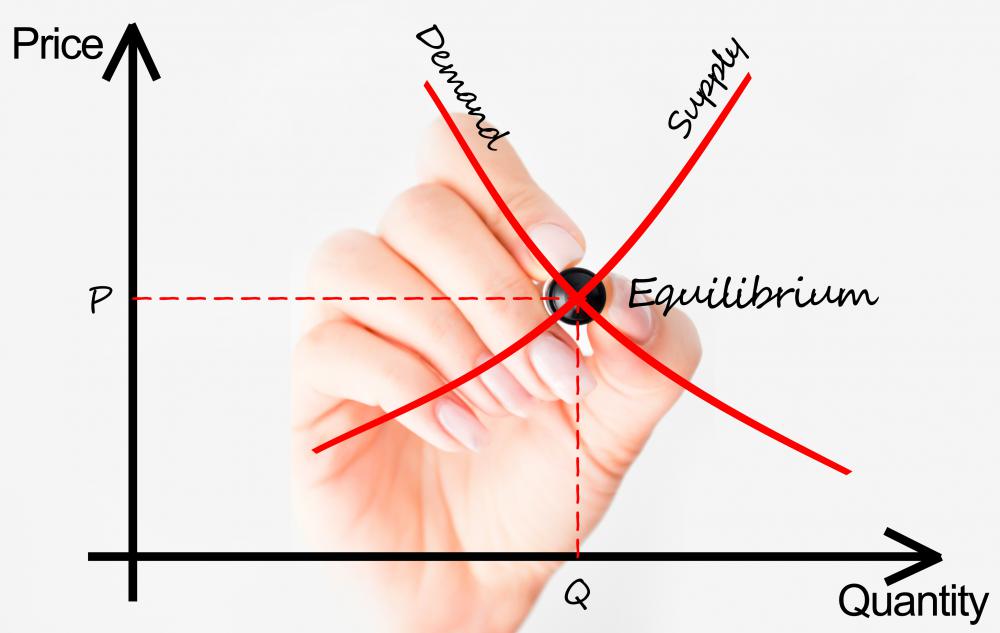At WiseGEEK, we're committed to delivering accurate, trustworthy information. Our expert-authored content is rigorously fact-checked and sourced from credible authorities. Discover how we uphold the highest standards in providing you with reliable knowledge.
What does a Supply Manager do?
Also known as a supply chain manager, a supply manager is a professional that oversees the process of locating and securing materials needed in order to keep a business functioning. In order to accomplish this goal, the manager is usually involved in the selection of vendors, setting guidelines for ordering and distribution of materials, and managing the process that is used for that distribution. Often, a manager seeks to understand the flow of supply and demand within the company and adjust the ordering and distribution process accordingly.
Supply chain management normally seeks to manage the acquisition and most efficient use of materials, so that the company benefits from steady production without the need to maintain high inventories that are subject to taxes. For this reason, the supply manager will often develop purchasing procedures that are based on the rate of usage of acquired materials during a given production period. This helps the manager to know when to reorder any of the materials needed so they arrive in time to maintain the rate of production, but not so far in advance that they create a tax liability for the business.

Managing the supply chain usually involves close interaction between the supply manager and the different areas or departments involved in the production process. This communication is key to making sure the current purchasing guidelines are in step with the needs for raw materials. Should production be curtailed for some reason, the manager will adjust the purchasing guidelines to either buy less of a given material or purchase the same amount less frequently. In like manner, the supply manager will upwardly adjust the number of units purchased or the frequency of orders if he or she is informed that production will increase.

In order to manage the process of supply and demand within the operation, a supply manager establishes positive working relationships with vendors and suppliers. The importance of those relationships are easily illustrated when unusual circumstances arise that require some sort of action outside the norm. For example, if the business receives a sizable customer order that must be filled in a very short period of time, the manager may approach a supplier with a request for a special order for raw materials that requires expedited delivery. Assuming the relationship is strong between the manager and the vendor, there is a good chance the vendor will be more amiable to taking steps to honor this unusual request.

Because production needs are likely to change quickly, a supply manager is constantly evaluating the current rate of usage of all supplies and adjusting the ordering accordingly. Doing so prevents the accumulation of materials that are not likely to be needed for extended periods of time, while making sure that materials needed more frequently are always on hand. In addition to keeping inventories low for tax purposes, this process also helps to keep the general indebtedness of the business within reason.

A supply manager is also likely to oversee what is known in many industries as a cycle-count inventory. Essentially, this is a periodic physical count of various materials by in-house codes or designations. This process makes it possible to adjust inventory balances that may occur due to the failure of departments to observe proper procedures in collecting raw materials from storage, materials damaged while in storage, or other factors that impact the number of usable materials on hand. The adjustment helps to keep the ordering schedule on track and ensure that production is not hampered due to a lack of available raw materials.
AS FEATURED ON:
AS FEATURED ON:















Discussion Comments
It seems to me that there are so many different types of managers in companies today, when in the past one or two managers did the bulk of the work. This is probably more efficient, because each manager has a specialized job that he or she controls.
Post your comments